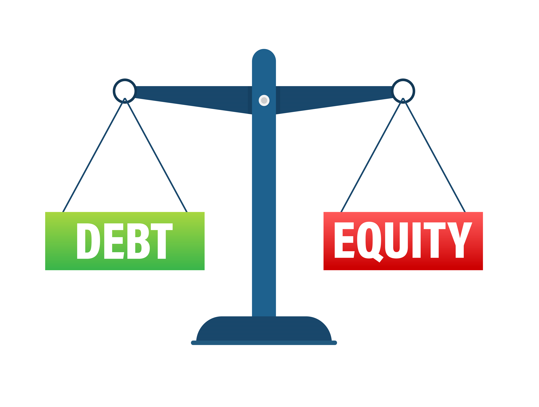Debt vs. Equity: A Deep Dive into Financial Markets
When it comes to investing, two primary avenues often present themselves: debt and equity markets. Each offers distinct opportunities and risks, and understanding the key differences is crucial for making informed investment decisions.
Debt Market: Lending Your Money
In the debt market, you are essentially lending your money to an entity, be it a government, corporation, or other organisation. In return, you receive a fixed or variable interest rate. This means a guaranteed return of your principal, regardless of the borrower’s performance.
Common Debt Instruments:
- Bonds: Issued by governments or corporations, offering periodic interest payments.
- Treasury Bills: Short-term debt securities issued by governments.
- Commercial Paper: Unsecured short-term debt issued by corporations.
Key Characteristics of Debt Investments:
- Lower Risk: Generally considered less risky than equity investments due to the guaranteed principal.
- Fixed Returns: Interest payments are predictable, providing a stable income stream.
- Limited Upside: Capital gains potential is limited compared to equity investments.
Equity Market: Owning a Piece of a Company
In the equity market, you are purchasing ownership shares in a company. This means your investment is directly tied to the company’s performance. If the company flourishes, your investment value can appreciate significantly.
Common Equity Instruments:
- Common Stock: Represents ownership in a company and provides voting rights.
- Preferred Stock: Offers a fixed dividend but typically doesn’t have voting rights.
Key Characteristics of Equity Investments:
- Higher Risk: Equity investments carry a higher risk as the value of your shares can fluctuate based on the company’s performance.
- Potential for High Returns: Successful companies can generate substantial returns for their shareholders.
- No Guaranteed Returns: There’s no assurance of a return on your investment.
Choosing Between Debt and Equity
The optimal choice depends on your risk tolerance, investment goals, and time horizon. If you prioritise stability and predictable income, debt investments might be more suitable. For those seeking higher returns with a willingness to accept higher risk, equity investments could be a better fit.
A Balanced Approach
Many investors find value in diversifying their portfolios across both debt and equity markets. This can help manage risk and potentially enhance overall returns.
Conclusion
Understanding the fundamental differences between debt and equity markets empowers you to make informed investment decisions. By considering your risk tolerance, investment goals, and time horizon, you can effectively allocate your assets and navigate the complex world of investing.
Would you like to explore specific investment strategies or discuss your financial goals with a financial advisor? Get in touch with us today.



